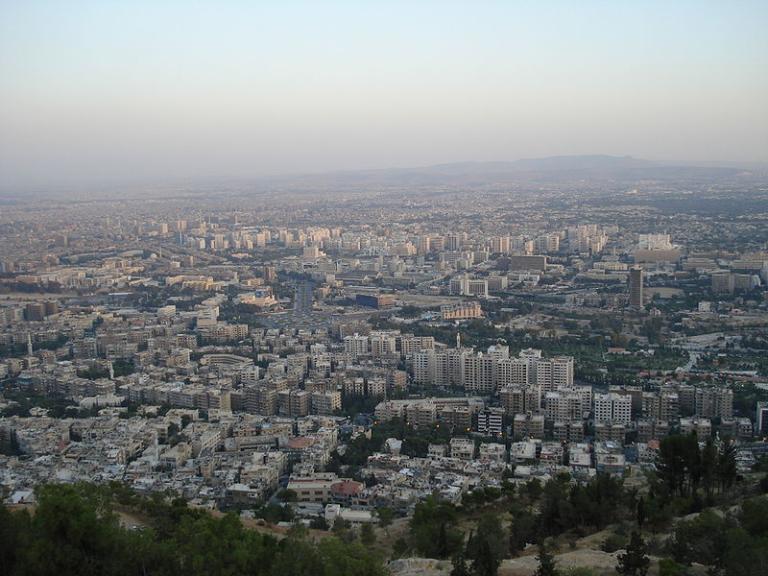
A general view of the city of Damascus from Mt. Qasyun (Wikimedia Commons public domain)
Several people have asked me for my opinion of the recent American and British and French airstrikes against Syria. So I guess I’ll give it.
But I preface what I’m about to say with the explanation that I’ve been extraordinarily busy of late, and, so, have not really been following the news as closely as I typically do.
First of all, I’m amazed that Bashar al-Assad launched a chemical attack in the first place. There is absolutely nothing more obviously guaranteed to arouse the indignation and revulsion of most decent nations and people and to risk a military response from other countries than the use of chemical weapons, especially against civilians. Moreover, several conventional weapons available to his regime (and often used by it) are actually more effective, more reliably lethal.
The attack is so odd, in fact, that I’m wondering whether he really did it. I don’t doubt that a chemical attack occurred, and it’s certainly possible that Bashar al-Assad ordered it. But it’s also at least conceivable that it was rogue elements within his regime — he inherited a tough position and tough colleagues from his late father, who was more obviously repulsive than Bashar sometimes personally seems to be — or, even, that it might have been opponents of his regime (they are legion) setting him up for international punishment. As Senator Rand Paul put it the other day, Bashar al-Assad is either the stupidest dictator in the world or he didn’t do it.
But, whoever did it, it couldn’t be left without response. Even if you eschew empire-building and international adventures, it seems to me that the use of chemical weapons (as in Russia’s recent assassination attempt in London) absolutely demands a response. Such use is illegal under international law, and that law must be enforced. If not, it will be ignored with impunity.
Another issue: Should President Trump have sought (and received) congressional approval before launching the raid? Congress has largely ceded its power to declare war to what some call the imperial presidency. There hasn’t been a congressional declaration of war since the early days of World War Two. Neither the Korean War nor the Vietnam War ever received an official congressional declaration. This is a bit troubling — and, of course, it’s not the only area in which the White House and the Executive Branch more generally have arrogated to themselves powers that properly, constitutionally, belong to Congress and/or to the individual states.
Finally, people ask me whether I’m nervous to be headed to the Middle East in the immediate wake of the coalition strike against Syria. To which my typical response is, “It’s the Middle East. What could possibly go wrong?”
Here’s a more serious response:
I’m not exceptionally worried. The Assad regime isn’t popular in its neighborhood. The jihadis dislike it because it’s fighting them. They probably even cheered the recent attacks. Fundamentalist Sunnis don’t like the Assad family because they belong to an odd religious minority, the Alawites, who are a strange, syncretic sect of Twelver Shi‘ism. Moreover, the Assad regime has lately become an ally, even a tool, of the Islamic Republic of Iran, a rising, non-Arab, Shi‘ite regional power whose potential hegemony in the Middle East deeply worries its Arab neighbors. So no, there are probably relatively few people in the countries where I’m going to be for the next few weeks — Jordan, Israel/Palestine, and Egypt — who shed any tears over the recent attack on Syria.
Iran and Russia, though? That’s a different story.











